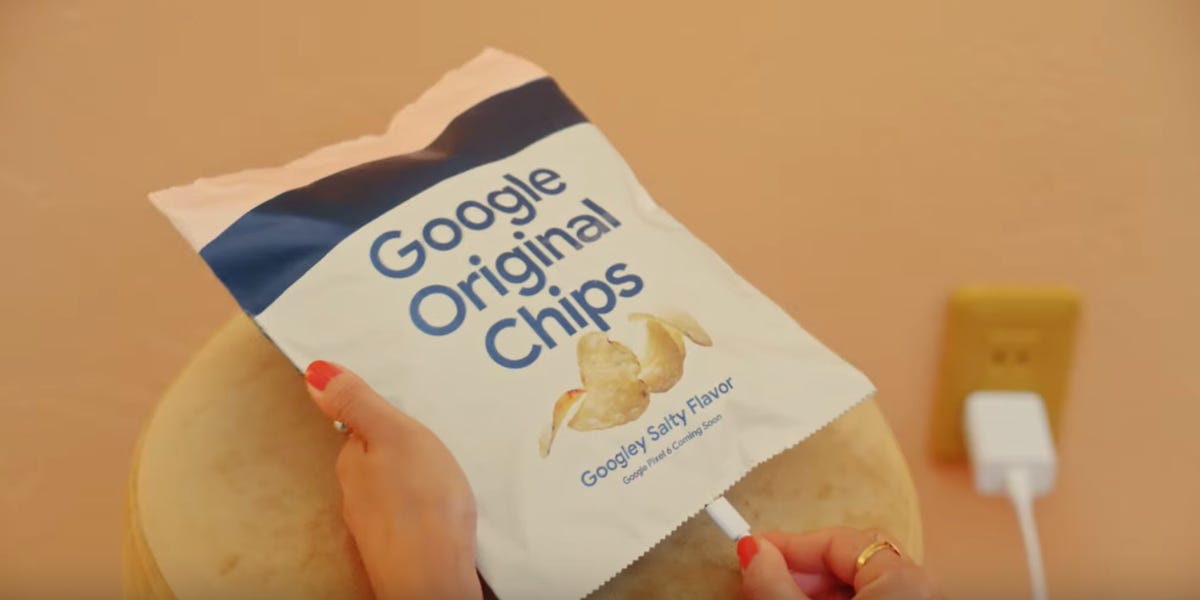
Look, you can even plug them in.
Screenshot by ZDNetIf there’s one thing Apple’s iPhone 13 did, it was surely to make people look forward to a phone that actually looks different, as opposed to another iPhone 12.
Placing the cameras diagonally opposite each other, as opposed to in a near little row, is hardly the stuff of consumer dreams.
Perhaps, then, the tingling for Google’s Pixel 6 will have been intensified.
Perhaps, too, Google realizes this. Because, in a peculiar enthusiasm for marketing, it’s suddenly dangling the prospect of a true surprise.
You, surely, will be wondering all about the so-called Tensor chip that will be embedded in the Pixel 6.
Please let me ask you, though. Does it make a noise? Can you pick it up and shake it about? And, most importantly, can you put it in your mouth and eat it?
You might think these questions absurd. I might think you simply haven’t heard of a quite startling inducement to excitement that Google is currently perpetrating.
It is releasing actual Google potato chips. The sort you eat and then lament their effect on your girth.
These aren’t ordinary potato chips.
For a start, Google’s ad shows the bag being plugged in. Now that’s a revolution.
And not only are they blessed with a “Googley salty flavor,” an idea I don’t find entirely palatable, but they come overtly personalized to the lucky recipient.
You know there’s a catch, don’t you? You know that obtaining a Googley salty flavor isn’t going to be easy.
Well, this promotion is running in Japan. And all 10,000 bags, 9to5Google laments, have already been taken. The fact that they were free to the first 10,000 applicants online suggests many were disappointed.
Take heart, however.
Even tiny attention-grabbing wheezes like this offer a glimpse into Google’s intentions.
Previously, Google’s phones have been marketed with all the enthusiasm of a goat at a wake. The Pixels came, the Pixels went and, other than a hardy band of loyalists, the phones made little market share impact.
If Google is truly serious — and the company has claimed it will exponentially intensify its marketing of Pixel 6 — then, at the very least, one might see Pixel 6 attracting a lot more attention than many of its sometimes very good predecessors.
I worry, however, that Google will make its marketing resemble, oh, every other phone ad.
One of its initial attempts shows young skateboarding intellectuals doing exciting, intellectual things, while the company promises that the Pixel 6 will see you for who you are.
Isn’t that a dreadful thought?



















